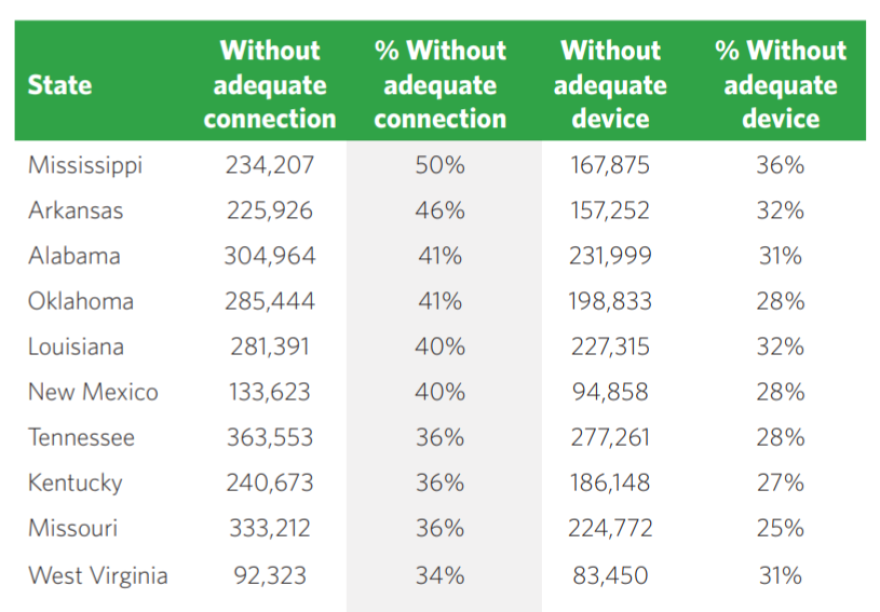More than a third of Kentucky students don’t have adequate access to the Internet at home, according to a new study by Common Sense Media.
Common Sense Media is a national advocacy group focused on digital access and safety for children and families. Their researchers say 36% of Kentucky students do not have home Internet access capable of supporting online learning. Additionally, 27% of students don’t have devices for online learning, such as a laptop or tablet. And 10% of Kentucky teachers don’t have reliable home internet, the study found.
The study puts Kentucky as the eighth-worst state in the nation for student Internet access. Nationally 30% of students are without reliable home Internet.

Researchers arrived at their estimates by using household-level data from the 2018-2019 American Community Survey and comparing it against data from the National Center for Education Statistics (NCES), as well as information from private-sector Internet providers.
“Connecting to the Internet is as essential today as it is to have running water and electricity at home,” Common Sense Media senior policy advisor Danny Weiss said.
Weiss said the coronavirus pandemic is bringing to light the disparities in access, also known as the “digital divide.”
“People are seeing just how devastating it is that some people can connect and others can’t,” Weiss said. He worries that lack of access over a prolonged period of time will mean students will fall behind in learning.
Research shows Black, Latinx and Native American students are the most likely to lack Internet access, which puts them more at risk of falling behind. The study estimates 18% of Kentucky students without Internet are Black, Latinx or Native American.
Because Kentucky is a state with a large rural population, Weiss said many residents don’t have home Internet because the infrastructure doesn’t exist. It’s expensive to lay cables in rural and mountainous areas.
“Companies are not interested in connecting to areas where they’re not going to get much revenue from the investment they put in,” Weiss said.
A state project known as Kentucky Wired aimed to solve this problem, but has become mired in legal disputes with Internet companies.
At the same time, many Kentucky residents live in areas where there’s infrastructure, but they can’t afford to pay for service.
Weiss called on Congress to fund Internet access and devices for students in need across the nation in the next federal CARES Act package. He estimates the cost will be between $6 billion and $11 billion in the first year, plus an additional $1 billion to pay for home access and devices for teachers.




